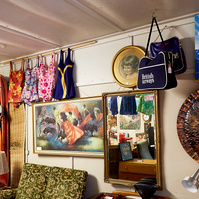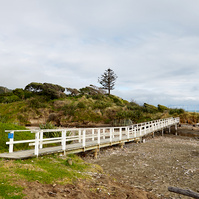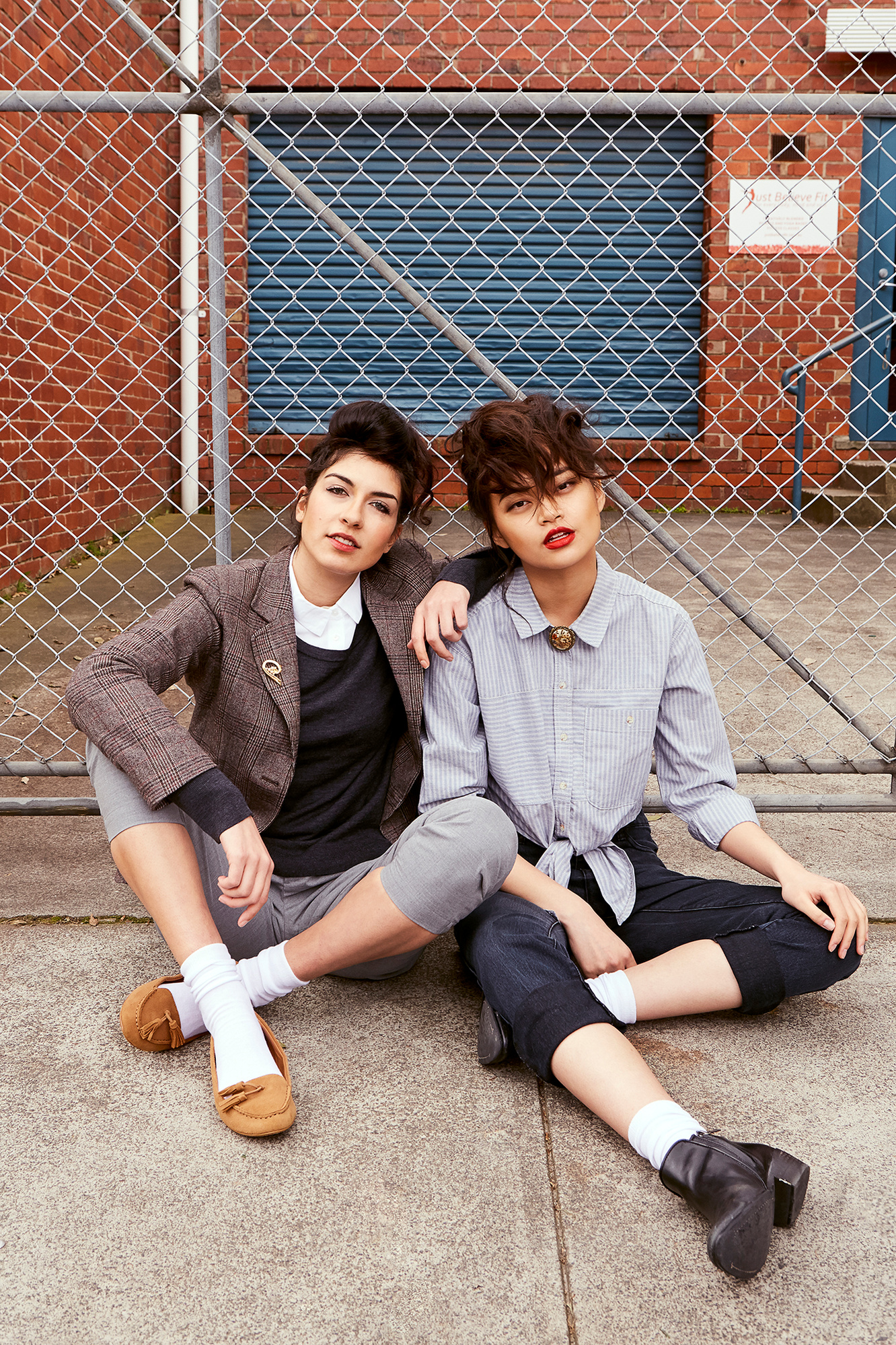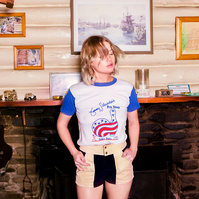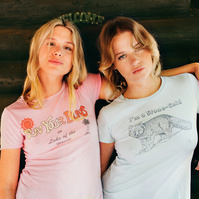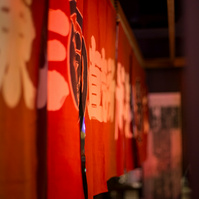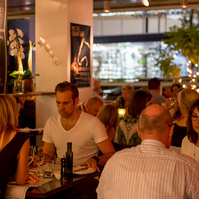Back home I hate Marmite, always have, always will. However, the MA-Mite in Waikanae is a pretty amazing here in NZ. I drove about an hr out of Wellington to find this gem full of Kiwiana, collectables and retro goodies. I didn’t buy anything but I’ll defo be visiting again.
marmite
MA-Mite
Waikanae
NZ
New-Zealand
Explore
Wellington
Roadtrip
Kiwiana
collectibles
retro
About a 1hr drive away from Wellington is the Kapiti Coast pronounced a bit like “Cup-a-Tea”… well, that’s how I remember it anyway. I stopped off at a place called Paekakariki and walked along the coast. It was roughly a 2hr return walk, this was my view along the way. Not my favorite walk in NZ but it is pretty good considering how close it is to Wellington.
Road-Trip
Wellington
kapiticoast
travel
landscapes
photography
lifestyle
Travel-Photography
New-Zealand
QueenElizabethPark
PekaPeka
NZ-Walks
So it’s been a while since I last updated my blog and a lot has happened A LOT…. New published editorials, clients, contacts, travel adventures, study and a place I now call home, New Zealand. I have managed to reveal highlights of the year that has passed on my Instagram page which can be found here www.instagram.com/hayleybenoit feel free to follow me @hayleybenoit.
NewZealand
Photography
Melbourne
Travel
Instagram
Editorials
“Teddy Girls”
Photography: Hayley Benoit
Fashion: Jac Dohrmann
Hair and Makeup: Bonnie Kapitany
Talent: Alison McNamara @ Chadwick & Desiree Cameron
Location: Melbourne, 2016
[Test Shoot]
Fashion
Style
Test-shoot
Model
Melbourne
TeddyGirls
Vintage
AmyWinehouse
Punk
Pop
Today my work was published in Brygg Magazine
[READ FULL ARTICLE BELOW]
WORDS Talor Browne
PHOTO Hayley Benoit
TIME September 24, 2016
In 2011, I saw Simon Griffiths sitting on a toilet with his pants down. Had you followed the right links, you could have seen it too. A grainy feed from a camera pointed at a bearded man wearing a dress suit, pants unbuckled to the ankles. He ended up sitting on that toilet for a whopping 52 hours.
It was all part of the clever marketing campaign used to launch Who Gives a Crap, a toilet paper company co-founded by Griffiths donating 50% of its profits to sanitation projects in developing countries through Water Aid. In those 52 hours, the team raised the $50,000 needed to launch, and now you can spot the fruits of his labour in any household or café in Melbourne, individually wrapped, colourful and iconic. The entire city is unknowingly supporting charity every time they use the bathroom.
Simon is a guy who makes things happen. We met at the communal table at the Melbourne café Seven Seeds, where he introduced himself with the kind of unabashed charm that only successful entrepreneurs manage to utilise so effortlessly. As we lined up to give our orders, he shared a taste of what he had achieved so far: Having spent the last 10 years in and out of developing nations, he had become acutely aware of how the majority is living without access to clean water and sanitation. When landing in South Africa, working on the ground with an ngo, he rapidly became disillusioned with the minor changes he was seeing through working only on a personal level. He felt like he needed to make a greater impact.
Simon’s solution was to usher in a new era of philanthropy, the kind that attempts to alter our perception of who a philanthropist can be. Instead of leaving the funding of important projects to a few wealthy individuals, the whole became the backer, through the purchase of daily staples such as toilet paper and beer. The idea was to let people facilitate change without ever having to ask for a donation. It was one of Melbourne’s first introductions to consumer driven philanthropy, and it was how Shebeen came to life.
A SECOND KIN
It can be difficult to wade through the overwhelming choice of places to eat and drink in Melbourne. The cheap serving licenses, obsession with good coffee and creative undercurrent creates a perfect environment for hospitality to thrive in. Shebeen, whose name is derived from a South African word for speakeasy, has seen success by utilising the brilliant concept of improving something that was already happening on a daily basis: consumption. By harnessing the ethical bonus of the profits being donated on behalf of the consumer, simply being a patron at Shebeen and purchasing a beer, leave those who choose to drink there with the warm glow of philanthropy for a small price.
Around about the time Simon was sitting down to stand up for his beliefs, another entrepreneur was also just getting started.
Not unlike Griffiths, Jarrod Briffa experienced a transformative two years in India, not realising until later how his time there had an enormous impact on his values and perspective on poverty and consumerism.
It was back in 2009 Briffa first reached out to tell me about an ambitious project hoping to combine social change and delicious coffee. I remember holding my reservations until he walked me through a tall wooden door just off one of the main streets in Melbourne’s commercial business district. The hum of the city fell away and I almost turned breathless seeing the space. The amount of work needed was extensive, but the opportunities were endless. His idea was simple: “Someone getting off a train at 7am in the morning is not thinking how they can be more charitable – but they are thinking about coffee. Kinfolk has the ability to leverage everyday consumer needs, like coffee, to create value for the disadvantaged in our communities”.
Jarrod knuckled down, and from that day onwards, with only a lean start up of $10,000 and a significant amount of volunteer time from some key players, the first hurdles were cleared without ever looking back.
From the beginning, Kinfolk’s goal has been to create a community that could utilise business as a force for change. It began with their model of conscious consumption – asking questions about where things come from, and it continued with an inclusive volunteer program supporting disadvantaged people.
The volunteer program’s inclusive nature seeks to break down societal barriers and provide an opportunity for people to contribute, whilst gaining confidence and skills. The open door policy means people are not tokenised for their situation, health or past, and it provides individuals with a chance to escape labels that may be holding them back. Customers can then participate by voting where they want their money to be donated.
A NEW BACKBONE
The Kinfolk model has been so successful that during 2015, they saw the participation of a 100 volunteers and were consequently able to donate over $56,000 to some important Australian charities, like The Cathy Freeman Foundation and Urban Seed.
As Kinfolk has evolved over the years, Briffa has come to realise that their focus is beginning to shift. Whilst the money made and donated will continue to be a significant feature, it is the relationships built and the direct impact Kinfolk has on the lives of its volunteers that has become the backbone of the business.
So much so, that their they are now looking for a second site where they hope to expand into a production kitchen, to extend their abilities to bring people together and create opportunities for those who might otherwise not have them.
Jarrod was aware of the astute nature of Melbourne diners from the get go. Understanding that regardless of the ethos of the place, people will choose to spend their hard earned cash elsewhere if they don’t find what they are looking for. Communicating this to his team, they have been completely on top of it, funding 99% of the business with revenue from trade – demonstrating a pretty extraordinary example of a successful social enterprise.
Briffa believes that social enterprise is the only real way to fund projects struggling to appeal to big money and traditional charity, such as community health and drug rehabilitation. These issues are extremely difficult to address through commerce, and in his opinion, “We need more collaboration between charities, social enterprises and businesses to develop creative responses to the challenges our societies face.”
In an increasingly competitive market with a highly skilled labour force and a savvy bunch of consumers, it’s nice to know there are entrepreneurs facilitating more than just the growth of industry. Businesses like Shebeen and Kinfolk are enabling global change on a local level, one drink at a time.
Today my work was published on Broadsheet
[READ FULL ARTICLE BELOW]
Photography Hayley Benoit
WORDS BY NICK CONNELLAN 07th June 2016
Can this cafe-saturated area handle another player?
Pretty soon, there won’t be any houses or apartments left in Collingwood. Just street after street of coffee shops. Tour the two blocks bound by Smith, Wellington, Stanley and Langridge Streets. You’ll find Proud Mary, Aunty Peg’s, Two Birds, South of Johnston, Mina-no-ie and Mr Peel Cafe.
You need a certain level of confidence to enter this crowded arena. The six partners at Plug Nickel have it. “We want to take things to the next level here,” says co-owner Pete Walsh. “We want a specialty coffee bar that sets a new standard for Melbourne.” That’s a tough ask in a city already seen as a world leader, in large part thanks to Small Batch, Seven Seeds and other world-class roasters.
Plug Nickel bypassed all of them and went to … Canberra. Our fine capital is home to Ona Coffee, a roasting company owned by Sasa Sestic, the 2015 World Barista Champion. Walsh grew up in Canberra and signed on as Sestic’s second-ever wholesale customer almost a decade ago. When he moved down to Melbourne and started Dr Morse, with Anth Daniel and Jon Costelloe (also co-owners at Plug Nickel), the relationship held. Dr Morse and Plug Nickel remain Ona’s sole accounts in Melbourne.
In line with doing things differently, Plug Nickel doesn’t use the ubiquitous La Marzocco brand espresso machine, or even the equally respected Slayer or Synesso. Sestic made sure it was the Sanremo Opera, a machine he and several other World Champion baristas helped design. It’s packed with technology, such as built-in scales for consistent extractions, and a Bluetooth-enabled tablet for adjusting every conceivable parameter.
Behind the machine, co-owners and veteran baristas Chris Graham and Lucien Kolff blend seasonal beans with milk from cows, macadamias, cashews or almonds. There’s also batch brew, cold brew and frothy nitrogen-charged coffee on tap. Cascara is a cold tea made from coffee cherries – it’s also on tap. Most orders are passed out the window onto the street.
The menu, by sixth partner Tyler Preston (Dr Morse), is all about food you can fit in your hands: breakfast roti, noodle salads, house-made sausage rolls, daily soups and pies.
Inside there’s just a few stools and high benches. In the next room, DJ Ginger Light is cutting and dyeing as Ginger Hair. Cycling-wares company Northside Wheelerswill soon move into the last room and use it as a shop. If it doesn’t get turned into another cafe first, that is.
Plug Nickel
7 Peel Street, Collingwood
(03) 8415 1425
Hours
Mon to Fri 7am–4pm
Sat 8am–4pm
Sun 9am–4pm
plugnickel.com.au
Commission
Food
Lifestyle
Photography
Travel
Melbourne
London
HayleyBenoit
Cafe
PORTRAIT
AUNTY-PEGS
COLLINGWOOD
CITY
EDITORIAL
FOODIE
Today my work was published on Broadsheet
Photography: Hayley Benoit
WORDS BY TIM GREY 06th June 2016
We’ve been hurtling towards this moment for some time.
To paraphrase Catalan theorist Joan Fontcuberta: “I ’gram, therefore I am.” Nary a meal is eaten in this town without first being hovered over with an iPhone 6. It’s a maxim cafe entrepreneur Ben Luo was keenly aware of when designing the menu for his new venue on Hardware Lane, White Mojo. “It’s very, very important,” says Luo. “The target customer is a pretty young age, and everyone’s got Instagram. It’s pretty much the best way to let people know about us and what we’re doing.”
This guiding principle of ’grammability informs every dish. The “croissant burger”, stuffed with deep-fried soft-shell crab, pickled cucumber, spicy mayo, smoked eel and fried eggs, provokes that immediate WTF response essential for going viral (figuratively, not literally). A cauliflower panna cotta with chorizo dust, Canadian scallops, 63-degree eggs and potato popcorn is served under a bell jar, billowing smoke over diners once the cover is removed. “They can open it themselves, they can record it, they can share it with a friend, Snapchat,” explains Luo.
Likewise, White Mojo’s Hulk-green matcha lattes are very much of their moment. Sourced from Uji in Japan, the powdered tea is ground on a traditional stone mill. “The matcha we get is very different to what most other people are using in Melbourne; it’s pretty much the best grade we can find,” says Luo.
Being less inherently visual and, ultimately, brown, the coffee situation’s more suited to a Twitter update: “House-roasted Sumatran coffee beans, 75 per cent natural, 25 per cent washed, make so-called Single Origin Blend @whitemojocafe.”
Design-wise, White Mojo is the bright ying to its sister-cafe Hash Specialty Coffee’s dark yang, with marble tables, honeycomb tiles and honey-blond wood.
So successful has the White Mojo playbook been that after only six weeks in business, the cafe’s already opened a second outlet in Balwyn, with a similar menu and fit-out. “It’s where I live, and I find there’s not that much food and coffee,” says Luo. “So we tried to offer the locals something really different.”
White Mojo
115 Hardware Street, Melbourne
182–184 Whitehorse Road, Balwyn
(03) 9078 8119
Hours
Mon to Fri 7am–4.00pm
Sat to Sun 8.00am–5.00pm
facebook.com/WhiteMojocafe
CLICKBATE
INSTAGRAMMABLE
FOOD
FOODIE
PHOTOGRAPHY
FOODPHOTOGRAPHY
LONDON
MELBOURNE
LIFESTYLE
CAFE
EDITORIAL
PUBLISH
TRAVEL
Fashion Story “Cabin Fever” for Y.A.M.B Magazine
Photography Hayley Benoit
Fashion Josie McManus
Hair and Make-up Star Royal
Nails Linel from Laqué Melbourne
Location Walhalla Log Cabin, Melbourne
First #editorial of the year 2016!! ✨Here’s a sneak peek from behind the scenes.. From my shoot last week for @y.ambmagazine • @hayleybenoit • Fashion @josiestardust • Talent @elissagirl & @lizzieevans @folk_collective • HMU @staroyal • Nails @laquemelbourne#fashion #melbourne #walhalla #cabinfever

